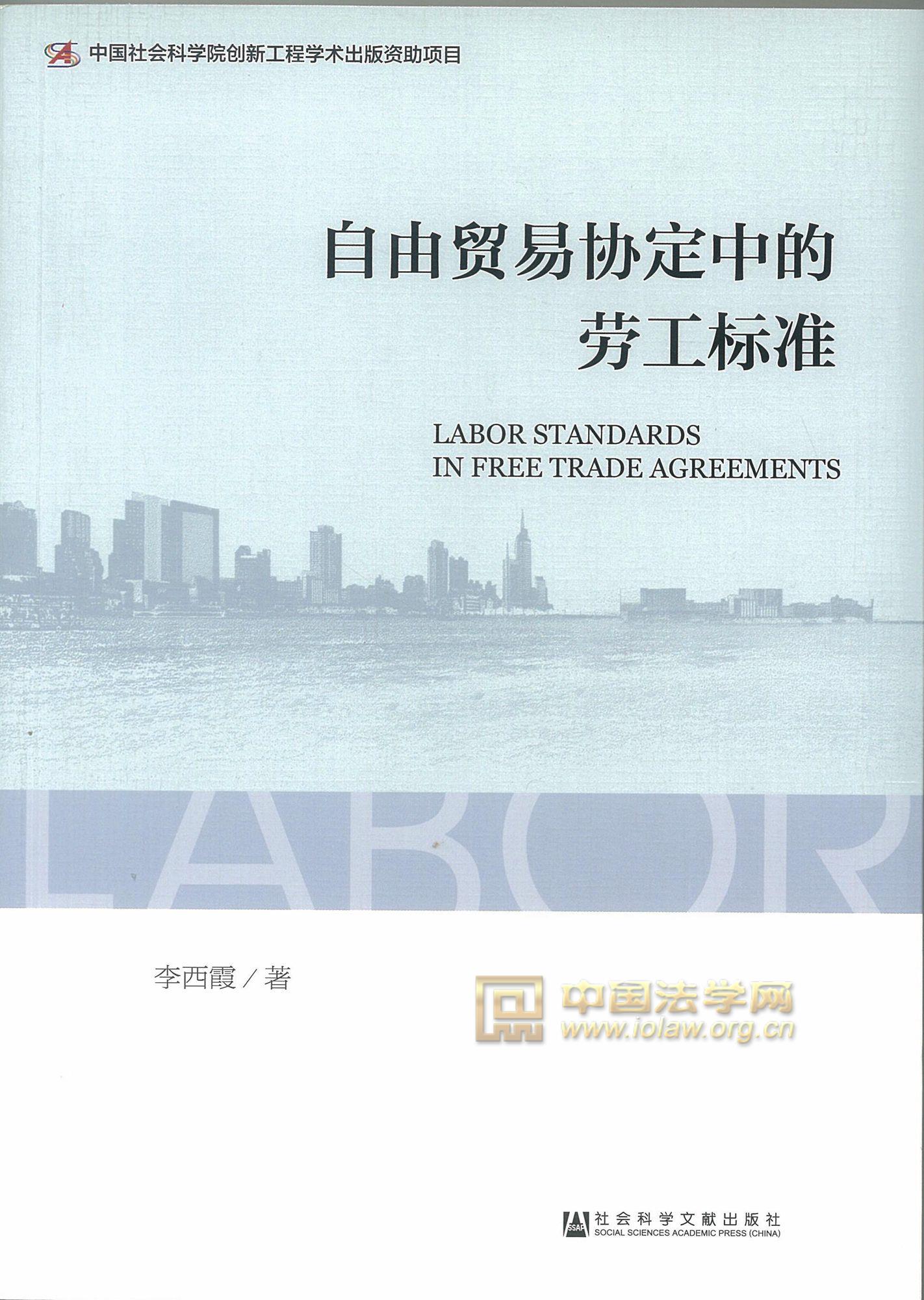
Li Xixia: Labor Standards in Free Trade Agreements: Beijing: Social Sciences Academic Press, 2017.
In the process of liberalization of global trade, the relationship between international trade and labor standards has been a long disputed issue. Nevertheless, practices that link international trade with labor standards through unilateral trade legislation, free trade agreements, codes of conducts of transnational corporations, and social responsibility systems already exist and are having major impact on international trade and the implementation labor standards. This book gives a comprehensive review of different theories on international trade and labor standards and a summarization of the practices that link international trade with labor standards. It discusses the labor standards, substantive rights and mechanisms for the resolution of labor disputes in free trade agreements between the three main economic entities of EU, US and Canada, as well as the basis for their construction and characteristics of their development, analyzes the institutional arrangements made by China for the incorporation of labor standards into free trade agreements, and puts forward countermeasure suggestions on the construction of labor standards in free trade agreement that are acceptable to China. Around the above theme, this book explores such issues as the attitudes of WTO and ILO towards the relationship between international trade and labor standards, internal labor standards of EU, core ILO labor standards, and the global trend of development of labor standards in free trade agreements. This book is the result of the research on the latest developments of the construction of labor standard and, as such, is of important reference value to China in the construction of labor standard in the free trade zones. The publication of this book is of great theoretical and practice significance to further strengthening the research on theories, policies and institutions of labor standards in free trade zones, and to constructing China’s own labor standards in free trade agreements.


